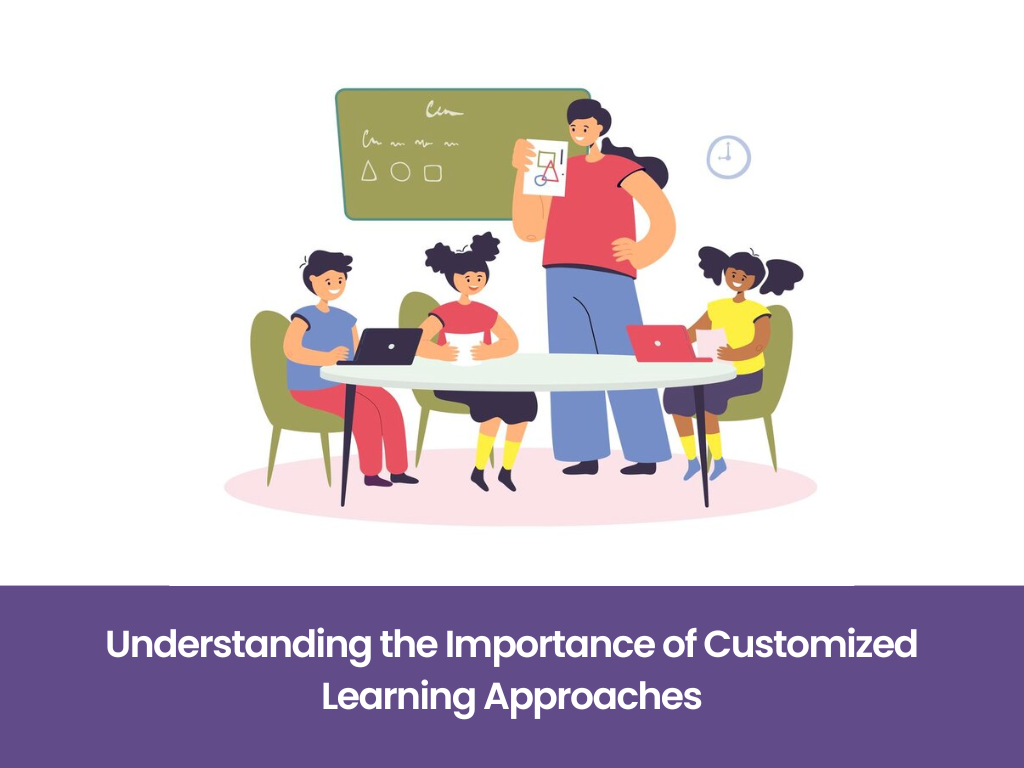Understanding the Importance of Customized Learning Approaches
posted on Nov 12, 2024
Explore the importance of customized learning approaches in education, focusing on how schools like BGS Vijnatham School tailor instruction to meet individual student needs, fostering skills like resilience and adaptability for a future-ready generation.

Education has traditionally followed a "one-size-fits-all" model, but as we recognize the diverse ways students learn, customized learning approaches are increasingly essential. Personalized education strategies cater to individual strengths, weaknesses, and learning styles, enhancing student engagement, confidence, and performance. In this article, we explore the significance of customized learning approaches and how they shape more effective and inclusive education experiences.
1. The Basis of Customized Learning
Customized learning tailors instruction to meet each student’s unique needs. It considers different learning paces, interests, and abilities, unlike traditional systems that often require all students to meet the same academic standards in the same amount of time. In a customized approach, students are given varied tools, resources, and methods, allowing them to learn in ways that align with their individual needs and preferences.
Key Elements of Customized Learning:
- Individualized Goals: Setting personal goals based on a student’s starting point and potential.
- Flexible Pacing: Allowing students to progress at a speed that suits their comprehension and comfort.
- Choice in Learning Pathways: Offering options in topics, projects, and assignments to match interests and strengths.
- Continuous Assessment and Feedback: Tracking growth over time and adjusting instruction based on progress.
2. Benefits of Customized Learning
Customized learning approaches have profound benefits for students, teachers, and the broader educational environment. Some of the primary benefits include:
a) Enhanced Student Engagement
When students have a say in their learning process, they feel more connected to the material. Customized learning encourages students to take ownership, which increases their enthusiasm and interest.
b) Improved Academic Performance
Tailoring education to individual strengths and learning styles enables students to comprehend and retain information more effectively. This leads to better performance, as they are not forced into rigid structures that may not suit their natural inclinations.
c) Development of Critical Thinking and Problem-Solving Skills
Customized learning often involves project-based activities and real-world applications. By engaging in hands-on tasks that relate to their personal interests, students develop essential skills such as critical thinking, creativity, and problem-solving.
d) Building Confidence and Independence
When students learn at their own pace and see measurable progress, it boosts their confidence and fosters independence. They are more likely to feel empowered to pursue goals and develop resilience when faced with academic challenges.
3. How Technology Supports Customized Learning
Technological advancements have revolutionized the way customized learning can be implemented. With tools like adaptive learning platforms, artificial intelligence, and data analytics, educators can provide personalized resources and real-time feedback.
a) Adaptive Learning Software
Adaptive platforms, such as educational apps and online programs, adjust the difficulty and content based on a student’s progress. This provides a unique learning path that evolves with the student’s growth and changing needs.
b) Data Analytics for Individual Insights
Data analysis tools enable teachers to monitor a student’s progress closely, identify patterns, and make informed decisions about when to offer additional support or introduce advanced material.
c) Virtual and Augmented Reality (VR and AR)
VR and AR offer immersive learning experiences that can be tailored to a student’s pace and learning style. For example, students studying biology could explore a human body’s structure through virtual reality at their comfort level, enriching their understanding through interaction.
4. Implementing Customized Learning in the Classroom
For schools and teachers, transitioning to customized learning requires careful planning and dedication to student-centered teaching. Here are several strategies to make this shift:
a) Differentiated Instruction
Differentiation is about providing multiple paths to learning based on students’ needs. Teachers can vary content, process, and products, allowing each student to engage with the material in ways that work best for them.
b) Flexible Grouping
Grouping students by skill level, interests, or preferred learning methods can enhance collaboration and engagement. Students work with peers who complement their strengths or challenge them in productive ways.
c) Project-Based Learning (PBL)
PBL allows students to explore topics that interest them while developing a range of skills. Projects are student-driven and often involve problem-solving, critical thinking, and creativity, aligning well with customized learning principles.
d) Continuous Formative Assessment
Instead of relying solely on exams, formative assessments, such as quizzes, reflective journals, or discussions, offer insight into a student’s learning process. This allows teachers to adjust instruction based on ongoing feedback.
5. Challenges in Implementing Customized Learning
While customized learning offers significant advantages, it also comes with challenges. Educators often need additional training to design and execute tailored lessons effectively. Resource limitations and class size can make it difficult to provide individualized attention. Nevertheless, with adequate planning, collaboration, and the right resources, these obstacles can be overcome.
6. The Future of Education: Fostering a Customized Learning Environment
As education continues to evolve, customized learning is likely to become more prominent, helping students to reach their fullest potential in supportive and adaptive environments. BGS Vijnatham School is pioneering this approach by offering personalized learning pathways that cater to diverse student needs, fostering an environment where each student can thrive. This shift means students can develop as unique individuals, equipped with the skills and knowledge to navigate diverse career paths and life experiences. By embracing the benefits of customized learning approaches, educators, parents, and students can look forward to a more engaging, inclusive, and effective education system that prioritizes individual growth and readiness for the future. This approach not only prepares students academically but also instills lifelong skills like resilience, adaptability, and self-awareness, which are essential in a world of constant change.